CAVEAT LECTOR (Let the reader beware):
I write this piece acknowledging I am neither attorney nor a professional journalist. But my experiences in each of those worlds have afforded me certain useful knowledge and insights. That is what I share here. I hope to provoke thoughts on your end, and I also caution you to always consult with your attorneys and communications team before acting on anything legal or media related. Trust me on that.
In a recent article, we discussed ‘brand loyalty’ and steps we should take to earn and sustain that loyalty from parents and the public. In follow-up, I thought it would be useful to look at some more tangible angles of the ‘brand’ issue.
I had a boss early in my career who offered me this pearl of wisdom: “never do anything in this job that you don’t want your mom to hear about on the 6 o’clock news.” Aside from the moral value of his advice, there is a useful working concept there that has served me well over these years. In this context, perhaps the advice would read: “never fail to do something in this job that you don’t want your mom to hear you failed to do on the 6 o’clock news.” Read on.
Here’s a question: What keeps you up at night…not having enough drivers? Accidents? State audit? Driver with alcohol on the bus? It could be any one or all of those. But it’s not just the specific issue that costs us sleep. It is also the ramifications on our record and our “brand.” That’s what we want to talk about a bit here in this article.
Suffice it to say that the media has a keen ability to place stories where they hurt the most when you read them. Consider these scenarios:
1) The local paper would place a story about school bus drivers under the influence of alcohol on the front page. Better still would be the second day story about a transportation director who was too busy to conduct reasonable suspicion tests, which led to the incident in the first place.
2) Or when a young child is left on a cold bus on a January afternoon, the headlines get as cold and biting as the outdoors. But it’s even worse if it is shown later that the operator failed to conduct driver training on requirements for checking for children left on the bus.
3) Or for one more example: one of your buses is involved in a crash and it’s found that it not only had a turn signal or a brake light out but also that the driver didn’t even realize it was out, which led to a rear-end collision. And then it’s revealed that your trainers had failed to refresh drivers on the importance of a pre-trip. How bad will that story sound on the 6 PM news?
It is important to see how the smallest slip-ups can be as devastating as the big ones. The press just has a way of picking things apart and asking questions and revealing pieces of our operation that we might wish were left alone. That’s a reason beyond ‘brand’ protection for us to dot all the I’s and cross all the T’s. As we pointed out in the ‘brand loyalty’ article last month, it takes a long time to erase a school bus event from the public memory. There is a value to excellence and a cost to laxity.
Let’s step away from media coverage to consider the liability aspects of just the above-referenced scenarios. In any one of those situations, your failure to act consistent with federal or state law and/or school policies increases your liability. If a child is hurt or killed in the situation, it is no surprise that the stakes increase tremendously.
As with the media, it’s important that you move with caution and with the advice of counsel whether you work for a school district or a private contractor. The words: “Anything you say can and will be used against you,” are for real and are not to be taken lightly.
Remember: in general, if you are doing your job religiously and complying with laws and regulations as well as state and school policies and practices, your life becomes a lot easier. It’s when you cut corners or simply don’t do what’s necessary that you’ll get yourself in trouble. Because when you fail to do what you should do, you not only have the problem of an accident or an injury but implicate yourself in that event. Your role consists of not doing something you knew about and failed to adhere to or observe. And believe this: a lawyer on the other side will inquire about what you knew or should have known, or what you may have learned in a training conference but failed to follow.
Let’s take the example of a driver who has an accident and is found to be over the BAC limits for alcohol in his blood stream. It’s bad enough that this involved a driver on one of your buses. It gets worse if you failed to conduct random tests or daily observations of drivers as required by FMCSA drug and alcohol testing regulations. And it is not acceptable (in the press or in a courtroom) to suggest the driver shortage took you away from your job and made it impossible to take those steps.
In that situation, your driver and you (1) have compromised your brand, (2) given the media a field day and (3) handed a good lawyer a winning lawsuit against your employer.
So, let’s wrap up. Again, I am only sharing practices that I have gleaned from years from meeting with and learning from attorneys, journalists, school officials and insurance companies (who don’t like to pay out on claims!). First rule of thumb: follow law and regulations and adopted policies and procedures. In fact, review your operations and, within school district protocols, develop and adopt internal procedures aimed at keeping your operation safe and secure. Document your efforts and activities. Paperwork may not seem like fun, but it helps immensely to be able to document steps you took to comply and to keep kids safe. Always take driver training, preparation, and compliance seriously. They are critical to ensuring that things will go right. And they are critical to your ability to tell the public or a litigant that you did your best to ensure safety for their children.
None of this will guarantee that you won’t ever face a lawsuit or that a reporter won’t give you a workover in a news story. No one can assure you of that. But we can all benefit from focusing on doing the right things to protect our brand, keep our media relations positive and avoiding the pain and penalties of legal actions.
Let’s continue the conversation and help one another out. It is all about the children we transport. We will come back to these themes in future articles.
Peter Mannella (pfman5@gmail.com) is chair of the NAPT Public Policy Committee.


